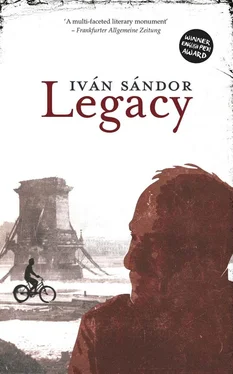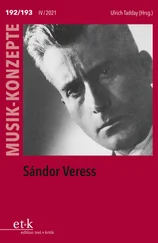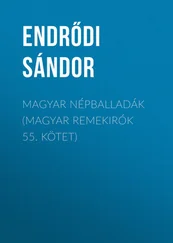And,
The two of them fought each other like jackals, but when Eichmann stepped into the hall he was sweet-tempered and acknowledged without comment what it was that Becher was to keep him posted about. Becher gave him no instructions, stressed that he was informing him of an order coming from staff headquarters, and meanwhile acted as if it was not Eichmann he was speaking with but turned to me, as if what was most important for him was that I take note of his intervention, and when it was possible I should pass that on to the appropriate authority. Even many years later I have no wish to imagine what Eichmann’s expression must have been like. All the same … The look lacked any feature that would have allowed one to deduce what I knew about him. That is was what remains most memorable. Yesterday, while writing my diary, I read that the Hamburg-based 101 Reserve Police Battalion of the Order Police (Ordnungspolizei), which included middle-class professionals, officials and skilled workers, without being given any specific order and acknowledging no political standards or moral norms other than those of the Nazis (that’s what it says), massacred several thousand Polish Jews in 1942. Might it be that taking action without thinking can result in more evil than the evil instincts that reside in man anyway? Everything that is happening here is all so ordinary, is what I read from Eichmann’s face, this Becher and this Swiss as well, which is to say me. Gertrud once said that Eichmann is proof of what man is capable of, and at the time I agreed with her. Now I hold a different view, but I am not in a position to discuss it with Gertrud. I don’t think he is proof of what man is capable of but what man is .
He underlines the two words then gets up from the writing desk. Through the window he can see the far shore of the lake and the green hills of the Appenzeller Vorderland. If he were to step over to the window opposite he would be able to see the church spire of Walzenhausen and that favourite rocky peak of the Meldegg. He returns to the desk, Not long ago at the bottom of a crate he had found his first diary: ‘Today I made a decision to keep a diary, and with God’s assistance I shall carry it on so as long as I am able to.’ The entry is dated 16 June 1914.
After some more rummaging he comes across two communications from the Consular Service of the Ministry of Foreign Affairs in Berne:
We draw to attention once more that your correspondence should always be circulated with a copy to the head of the legation. We are firmly convinced that if you had kept Herr Kuebler, the Consul, fully informed he would have stopped you from committing professional mistakes.
That communication is dated 3 May 1938. Lutz could not remember what the professional mistakes in question had been; all he recalls is that in 1938 Kuebler was Consul-General of the Swiss Legation in Palestine.
The second communication is dated 17 September 1938:
It has come to our notice that you are preparing copies of official communications for your own private collection. As you are probably well aware, under no circumstances may federal officials lay claim to materials that they have committed to writing in their official capacity.
Carl Lutz wonders how many drawers at home must be filled with his diaries and files.
I muse that my country’s policy was not to extend recognition to Stalin, and how right it was, but to recognize Hitler and Mussolini. Those who reminisce often pose the question, what kind of people were those diplomats? I posed similar questions myself in 1944 in Budapest: what kind of people were the Hungarians who cooperated with Hitler? Exactly what? What kind of Hungarians? And what kinds of Swiss are my superiors?”
He puts down his pen. Who, he wonders, poses questions like that? He supposes that everything vanished even for him, despite all his efforts; to no avail the reminders of his diaries and photographs.
He steps over to the window once more.
The look-out on the Meldegg is easy to spot, but the emotion that he felt when he first glimpsed the rocks is irretrievable.
The story has been lost, he writes, but why should it have been brought home to me on that particular day; that I didn’t know then, and I don’t know now either, he notes down five years later, when he reads what he wrote on 19 September 1962.
Eichmann takes leave of Kurt Becher with a salute and Heil Hitler! He does not go out through the door leading to the restaurant. A smaller door leads to a staircase going down to the hall. A few minutes later Becher also departs by those stairs.
Carl Lutz returns to the restaurant. A cognac or coffee? Gertrud asks. Gertrud and Gizi take cognac, Lutz a coffee.
Two hours later Adolf Eichmann climbs into the armoured car that is waiting for him in front of the Hotel Majestic. In a photograph preserved by the Military Archives Division of the German Federal Archives he is smiling as he leans on the vehicle. The caption states this is the last photograph of him to be taken in Hungary.
Three hours later Kurt Becher left Budapest in another armoured car.

Gizi was watching television yesterday, says Mother; she rang me up to pick her up at Ruszwurm. Once a month she takes her afternoon cup of coffee at Ruszwurm Confectionery on Szentháromság Street on Castle Hill in Buda. Gizi is the deputy manageress, and she brings my mother a coffee, sits down with her and they chat for half an hour every month.
She was looking peaky, says Mother. Which means she herself is looking peaky, if she says that Gizi was looking peaky, and she needs to moisten her cracked lips. She covers her mouth with the palm of one hand so that no one should see her as she gathers her spittle then passes her tongue first over the upper lip then the lower lip. I’m sitting in front of the television, Gizi tells Mother, and it is showing pictures from the Eichmann trial in Jerusalem. You’ll never believe it, but I once saw him; I had a brush with him in the Gellért when I was with the Lutzes and he walked past the table. Mother takes the hand from in front of her mouth, her lips still cracked as far as I can see. I had to grasp Gizi’s hand and press it against the marble table; she was trembling, repeating over and over, you know, he walked right by me, right by me. Carl Lutz was pale-faced when he got back from the other room, says Gizi I don’t know who he’d been speaking to — with Kurt Becher, that much I knew, because Gertrud recognized Becher — but neither of us had known who Eichmann was.
After the coffee Gizi had served herself a glass of cognac, although it was forbidden to drink any alcohol while on duty, says Mother.
Adolf Eichmann was hanged in Jerusalem in 1962. He had maintained his innocence throughout the trial. Hannah Arendt wrote of the judgement that was handed down:
And just as you supported and carried out a policy of not wanting to share the earth with the Jewish people and the people of a number of other nations — as though you and your superiors had any right to determine who should and who should not inhabit the world — we find that no one, that is, no member of the human race, can be expected to want to share the earth with you.
With a report of what my investigation has uncovered tucked under one arm I walk down to the hotel lobby. The corridor off to my left leads to the tearoom. I pay a visit to the gents. After washing my hands I comb my hair. I then sit at one of the windows that looks on to the Danube, waiting for Györgyi.
At the next table they are speaking in German — businessmen, no doubt. Grey and brown jackets — small-chequed and large-chequed — buttoned shirt collars, cross-striped light necktie, plain azure necktie, black leather folders. Hennessy brandy, plum brandy.
Читать дальше













